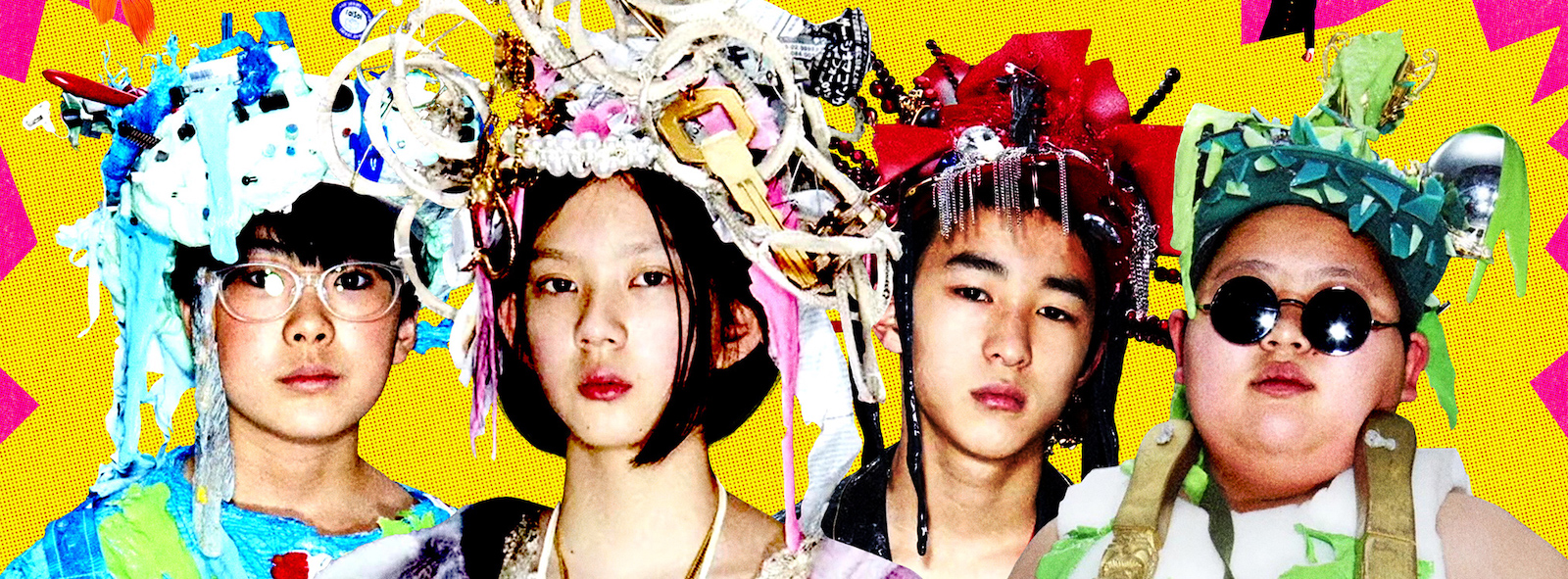
We Are Little Zombies, the feature length debut for Japanese director Makoto Nagahisa, is a glorious contradiction of a film that combines heavy, potentially depressing narrative with vibrant, invigorating filmmaking. While these competing elements could have made the film a tonal mess, Nagahisa weaves them together in a way that produces something truly special.
The film opens with a group of four children who meet on what should be the worst day of their lives; all of their parents have just died. But they all seem to be able to take the deaths in stride. In fact, they don’t seem to have any real emotions about their loss at all. The more we learn about them, the more we find out that much of their lives have been a series of trauma that have desensitized them to the point where their parents’ death is just another thing that might as well happen.
Hikari (Keita Ninomiya) is a latchkey kid whose parents were more interested in their own lives than his before they died in a car accident. Yuki (Mondo Okumura), who’d been physically abused by his father, finds both parents in his father’s shop after they’d committed suicide. Shinpachi (Satoshi Mizuno) thinks so little of himself that he believes he should have been killed in the grease fire that killed his parents. And then there’s Ikuko (Sena Nakajima), a young girl whose parents criticize her for people’s tendency to become obsessed with her, and are subsequently murdered by her deranged piano teacher after she made an off-handed comment that she wished they’d disappear.
Nothing about this screams “uplifting,” but Nagahisa does everything in his power to present this story through a prism of music and rainbows that somehow seems appropriate. Since Hikari is an avid gamer, most of the score is in the peppy, 8-bit style that those of us of a certain age remember from the video games of our youth. Nagahisa’s shot choices mirror this aesthetic, often framing the kids in direct overhead shots also reminiscent of old video games. But there’s still an edge to his approach, including a particularly harrowing scene with Yuki’s father beating him in a Street Fighter II-style sequence, injecting the horror of the scene with gallows humor.
That dark humor permeates both the film and the characters, as all of the kids react to the awful things that happen to them with a mixture of Zen-like detachment and sarcastic amusement. On one hand, the way these kids are able to seemingly shrug off their trauma makes them incredibly charming and keeps the film from devolving into sadness-porn. But on the other hand, when you think about the emotional calluses they’ve had to develop at such a young age, it becomes that much more tragic to realize that these kids never really got a chance to be kids at all.
Establishing our young heroes in such a way sets the stage for the film’s biggest thrust, as the kids produce a DIY music video and catch the eye of a would-be talent agent. From here on out everything escalates, from the insanity of the story as these kids navigate the ramifications of becoming stars literally overnight to the scope of Nagahisa’s exploration of the hardships we inflict on children. If the first half delves into the struggles kids face on a personal level, the second half is more concerned with the way we exploit children on a societal level.
With that expansion of scope, Nagahisa throttles the kinetic feeling of the film into overdrive, taking the kids (and the audience) on a whirlwind of color and motion that is almost enough to make your brain implode. At the center of the storm, our quartet maintains their general air of indifference, an eerie eye at the center of this hurricane. But we do see their edges finally starting to fray, not necessarily due to the outside forces but from their interactions with one another as they finally try to make some kind of sense about how to process their collective loss.
As much as I applaud Nagahisa for finding a seemingly-impossible balance to the film’s tone, that these kids manage to keep up in their performances is something of a miracle. In particular, Keita Ninomiya proves endlessly charming as the film’s unassuming narrator and Sena Nakajima shines as Ikuko, who acknowledges and subverts the standard tropes that come with a movie featuring a lone girl in a group of adolescents.
Ultimately, We Are Little Zombies has a lot in common with the eponymous song that launches the kids to stardom: it’s got really depressing lyrics but a catchy tune that you can’t get out of your head. It’s a movie about finding the beauty among all the horrible things that life can throw your way. While it doesn’t claim to have a magic answer to getting rid of misery, it does offer a worthwhile argument for forging on in spite of it.
We Are Little Zombies hits virtual cinemas and live cinemas July 10th.




